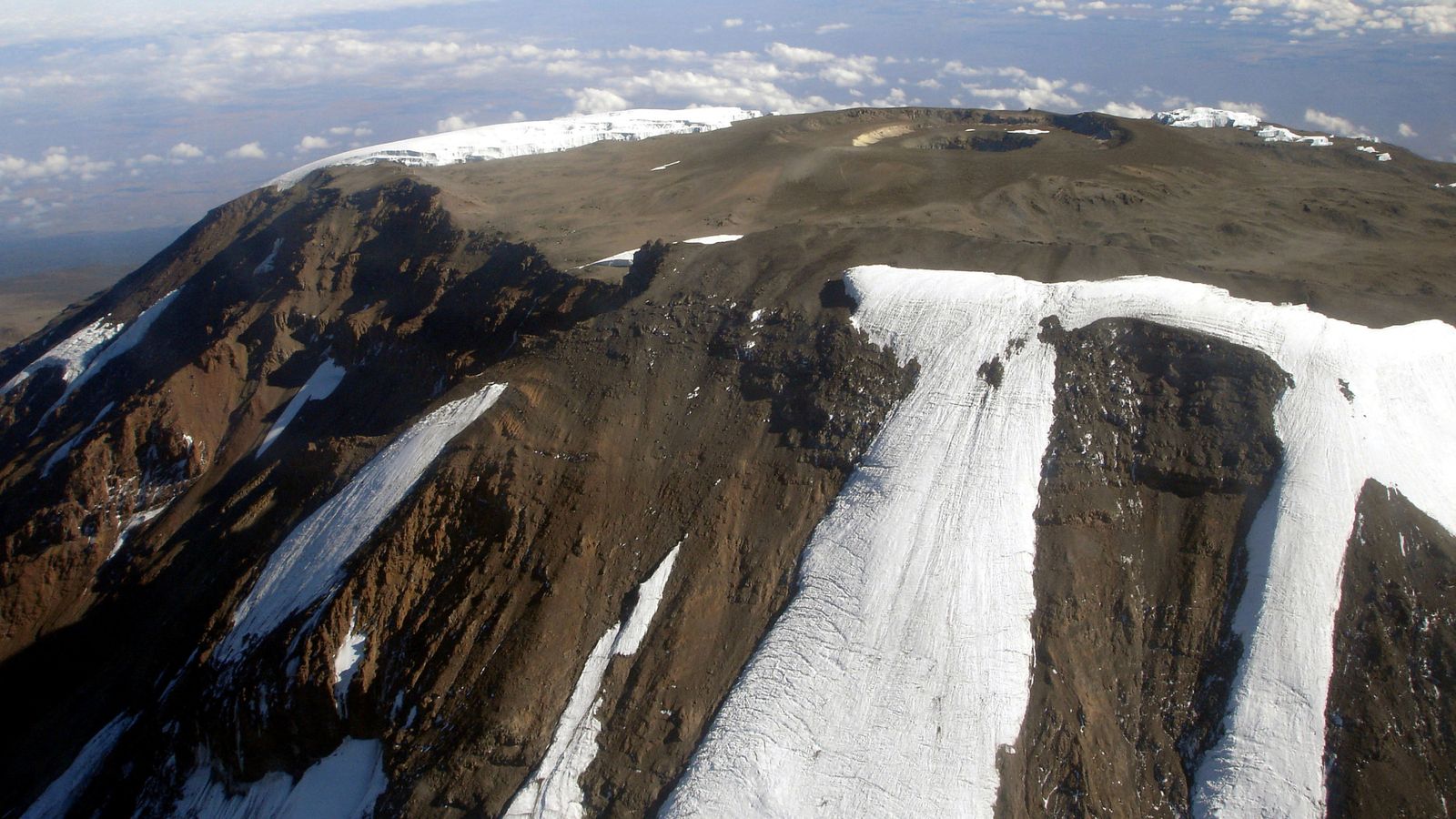Mount Kilimanjaro’s ice cap is among some of the world famous glaciers predicted to disappear by 2050 due to global warning, according to a UNESCO report.
The United Nations cultural agency UNESCO monitors around 18,600 glaciers across 50 of its World Heritage sites.
In a new report, it says a third of those glaciers are set to disappear in the next three decades – including those in the Dolomites in Italy and the Yosemite and Yellowstone parks in the US – whatever the temperature rise scenario.
UNESCO predicts that around 50% of World Heritage glaciers could almost entirely disappear by 2100 – while some may be possible to preserve by keeping global temperature rise below 1.5C (2.7F).
World Heritage glaciers as defined by UNESCO make up around 10% of the world’s glacier areas overall.
They include some of the world’s best-known glaciers, which are gradually melting in very public view as they are focal points for global tourism.
The report’s lead author Tales Carvalho said that World Heritage glaciers lose around 58 billion tonnes of ice every year on average.
Climate change: Europe is a ‘live picture of a warming world’, with temperatures rising more than twice as much as other continents
Climate change: Majority believe government doing too little to combat global warming, poll suggests
COP27: Greta Thunberg to boycott UN summit due to ‘human rights abuses’ in Egypt
This is equivalent to the total annual volume of water used in France and Spain together – and contributes to almost 5% of the global observed sea-level rise.
Mr Carvalho added that the single most important protective measure to prevent major glacier retreat worldwide would be to drastically reduce carbon emissions.
Read more:
The great glacier thaw: 50-year-old plane wreckage revealed in the Swiss Alps
Uttarakhand dam disaster: Did melting glaciers cause India’s deadly flood?
Rescuers find body parts after deadly avalanche on Italian glacier
UNESCO is encouraging local authorities to make glaciers a focus of policy by improving monitoring and research, as well as implementing disaster risk reduction measures, given the inevitable further shrinking of many of these glaciers in the near future.
“As glacier lakes fill up, they can burst and can cause catastrophic floods downstream,” Mr Carvalho said.
The report comes on the eve of the COP27 event in Sharm el Sheikh, Egypt, being hailed as Africa’s first UN climate conference in six years.
Back in August, a study found that Switzerland’s 1,400 glaciers had lost half of their total volume in less than a century and the retreat of ice is accelerating.
The researchers found that ice volumes shrunk by half over the 85 years from 1931 to 2016, and since 2016 they had lost an additional 12%.









